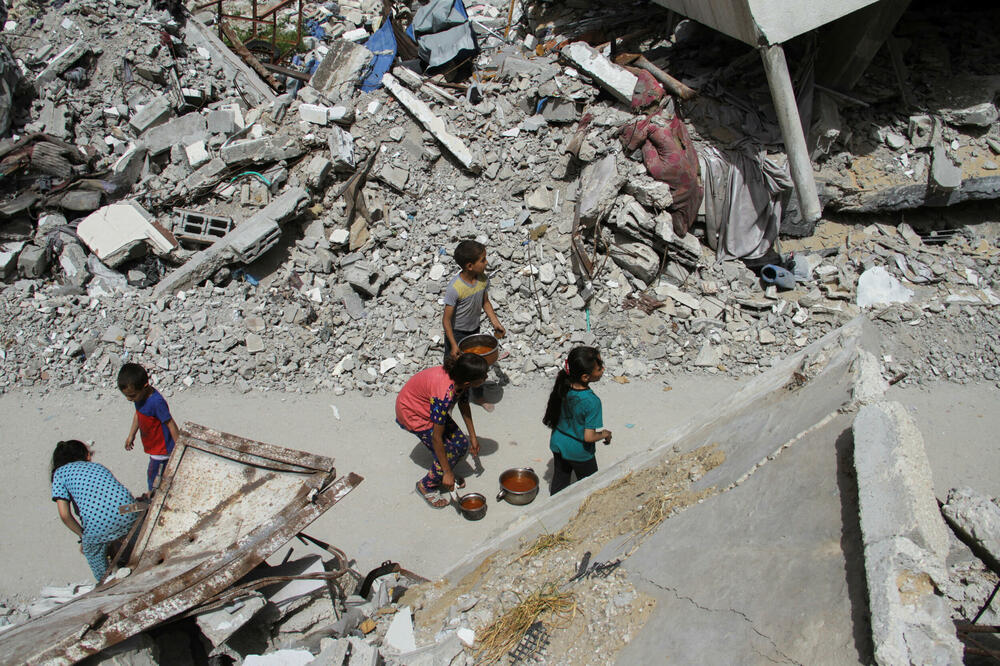The world order built after 1945 is "on the verge of collapse", warned Amnesty International (AI) in its annual report on human rights in the world published today, in which Israel and the United States of America (USA) on the one hand and Russia are particularly criticized. and China on the other.
From the Middle East to Ukraine via Myanmar, Sudan or Ethiopia, where conflicts are taking place accompanied by massive violations of human rights, "everything we have witnessed during the last 12 months indicates that the international system is on the verge of collapse", said AI Secretary General Agnes Calamar for France pres.
"In recent months, the US in particular has shielded the Israeli authorities from any careful consideration of the numerous human rights violations committed in Gaza," she said.
"By using its veto against the necessary cease-fire, the US deprived the Security Council of the United Nations (UN) of any meaning," said the secretary general of that non-governmental organization based in London.
Especially since, in parallel, "powerful actors" such as Russia and China "show a willingness to threaten the integrity of the regulations from 1948, the key year for the construction of the current international system," she warned in the report.
Amnesty's report documents "flagrant human rights violations by Russian forces during the invasion of Ukraine, resorting to torture and other ill-treatment of prisoners of war."
By protecting Myanmar's military and turning a blind eye to attacks on the population amid the civil war, China was also acting against international law, the NGO said.
The war in Gaza began on October 7 with an unprecedented attack by Hamas commandos in the south of Israel during which 1.170 people were killed according to the balance of the French Press established on the basis of official Israeli data. In response, Israel has vowed to destroy Hamas and has been waging a military offensive in Gaza for more than six months that has so far killed 34.183 people, according to the Hamas Health Ministry.
Famine threatens the north of the territory and Israel continues to prepare an attack on the Rafah, raising the concerns of many foreign countries and humanitarian organizations.
Amnesty condemns the monstrous crimes committed by Hamas on October 7, after which "Israel launched a campaign of retaliation that turned into a punitive expedition against the entire population."
After 200 days of that conflict, which has consequences for the whole world, Kalamar questions the role of international institutions that should act. However, as she assessed, they leave the world in the lurch and call into question "the validity of the ideals established after 1945".
"For millions of people in the world, Gaza now symbolizes the absolute moral failure of many of the creators of the system established after the Second World War," said the Secretary-General in the introduction of the report.
As Calamar told France Press, it is necessary to "revitalize and restore international institutions", especially by urgently reforming the UN Security Council and its veto power, so that it cannot be used in situations of massive human rights violations.
Amnesty also raised concerns about the growing power of artificial intelligence, a technology that can accelerate the spread of false information or perpetuate racist attitudes.
Amnesty accuses big tech firms of ignoring or minimizing these threats even in the context of armed conflict.
Calamar warned that if left to run freely, this outlaw technology and its malign means could have the effect of worsening human rights violations in 2024, when numerous elections are held around the world from the US to India to the UK and the European Union.
"The spread and deployment of unregulated technology such as generative artificial intelligence, facial recognition and spyware" pose a "huge threat" that requires governments to "take legal action and robust regulations," Kalamar said.
Bonus video:




